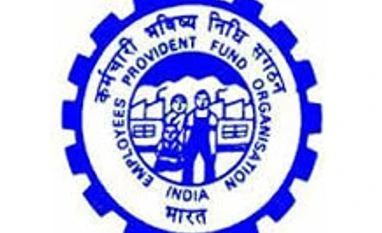Federation of Indian Chambers of Commerce and Industry (Ficci) has strongly supported provident fund (PF) deduction on full amount of ‘minimum wages’ where such wages are being paid under the Minimum Wages Act, 1948.
For employees who are on a higher salary bracket and receiving allowances as incentives or performance based rewards to promote business, Ficci said that the PF contribution should be restricted to basic salary.
The press statement by Ficci said that the reported proposal to re-notify the definition of ‘basic wages’ under the Employees Provident Fund & Miscellaneous Provisions Act (EPF and MP Act) 1952, is fraught with huge financial implications both for industry and government.
Most of the employees today join an organization above this statutory limit and they are voluntarily covered by the industry.
Currently, there are more than 50 million EPF subscribers from both organized and unorganized sectors and assets worth Rs. 5 lakh crores with the EPFO are available for investment. "Almost, 40% of these assets go to the Central and State Government securities," said Ms. Naina Lal Kidwai, President, Ficci.
Ficci further added that the introduction of a triple test-‘Ordinarily, Necessarily and Uniformly’-for the purposes of defining basic wages will arm the field staff of the EPFO with full powers to brand any component of salary, other than those exempted, as part of the wages for deducting EPF contribution, imposing thereby a huge financial liability on the establishments.
"The move is ill conceived and if brought into force will dampen business and investment sentiments which are already at a low ebb," said Ficci.
For employees who are on a higher salary bracket and receiving allowances as incentives or performance based rewards to promote business, Ficci said that the PF contribution should be restricted to basic salary.
The press statement by Ficci said that the reported proposal to re-notify the definition of ‘basic wages’ under the Employees Provident Fund & Miscellaneous Provisions Act (EPF and MP Act) 1952, is fraught with huge financial implications both for industry and government.
More From This Section
It said that it could even be counterproductive to the Employee Provident Fund Organisation (EPFO), as organizations who are extending coverage to employees receiving salaries above Rs 6,500 may choose to opt out, depriving the employees coverage under a globally renowned social security scheme.
Most of the employees today join an organization above this statutory limit and they are voluntarily covered by the industry.
Currently, there are more than 50 million EPF subscribers from both organized and unorganized sectors and assets worth Rs. 5 lakh crores with the EPFO are available for investment. "Almost, 40% of these assets go to the Central and State Government securities," said Ms. Naina Lal Kidwai, President, Ficci.
Ficci further added that the introduction of a triple test-‘Ordinarily, Necessarily and Uniformly’-for the purposes of defining basic wages will arm the field staff of the EPFO with full powers to brand any component of salary, other than those exempted, as part of the wages for deducting EPF contribution, imposing thereby a huge financial liability on the establishments.
"The move is ill conceived and if brought into force will dampen business and investment sentiments which are already at a low ebb," said Ficci.
)